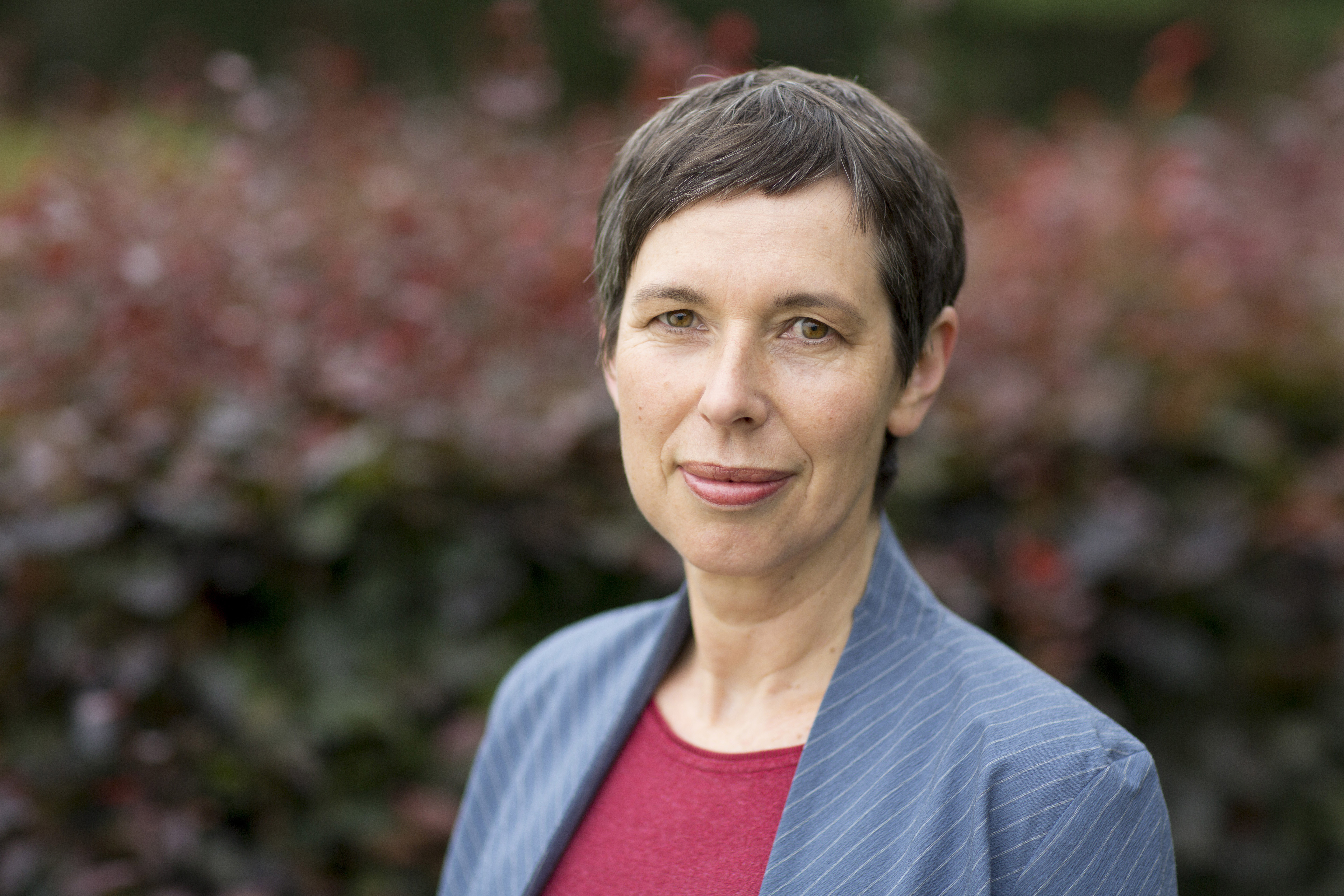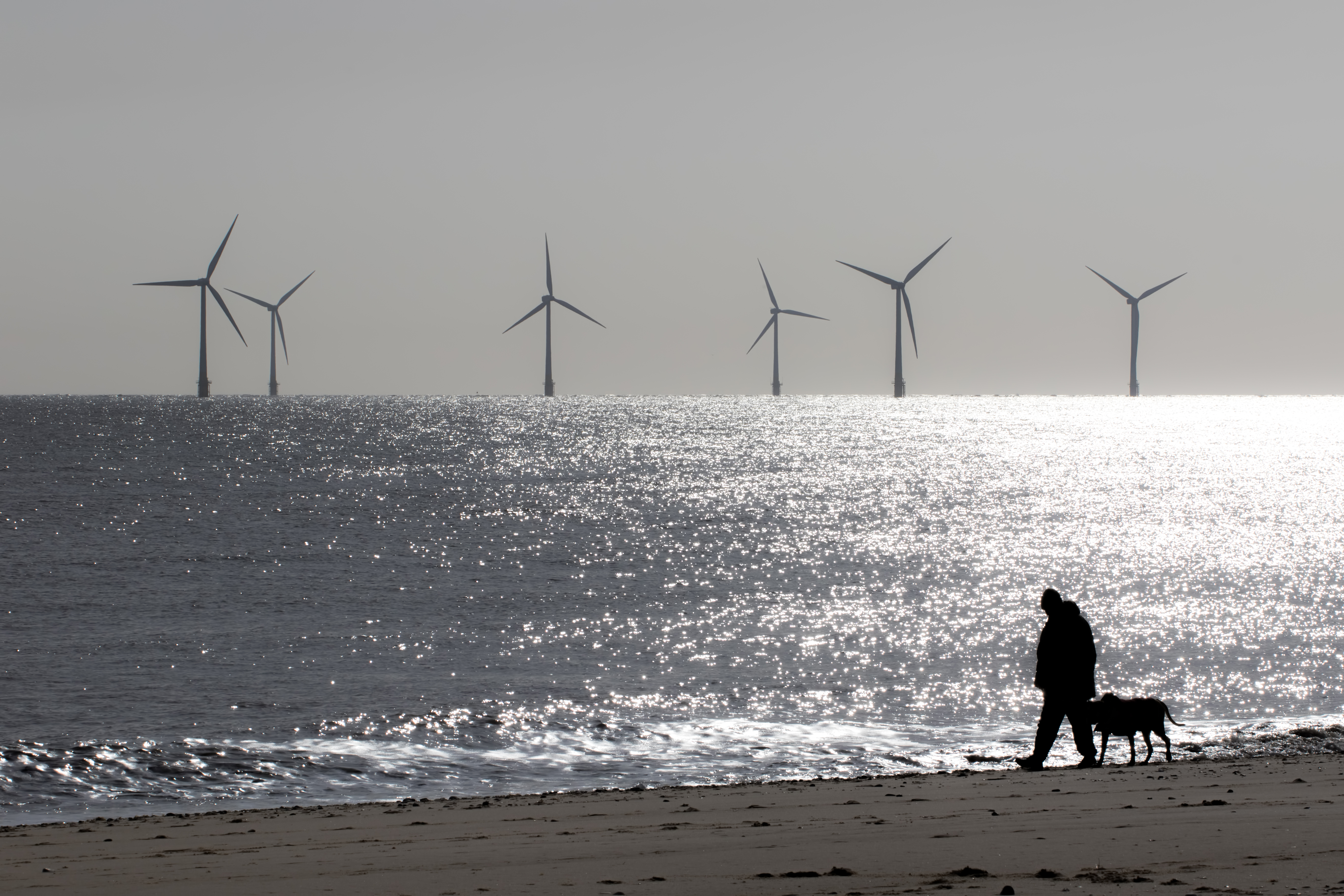The energy transition is inevitable, and many people want clean energy. However, local residents may be concerned if a wind turbine is placed in proximity of their homes. Noise and shadow flickering may cause stress and annoyance for some. Prof. Dr. Gundula Hübner researches the social acceptance of renewable energy sources. ‘Everyone experiences the energy transition differently. Through empirical research, we want to understand why some people accept it and others are upset by it’.
Door: Marjolein Bezemer.
In 2020, Statistics Netherlands (CBS) conducted a survey on people’s experience of climate change and the energy transition. Three quarters of the Dutch population are concerned about the consequences of climate change, and a large majority want more sustainable energy. 72.5% of those questioned want more wind turbines to be built, but only if they are not situated too close to their homes.
Friction with local residents
‘It is fascinating to look at the development of a wind turbine from different perspectives’, says German Professor Hübner in a video interview. In the Netherlands, wind energy projects are often initiated by a government or a project developer. During the planning phase, the government determines an appropriate location for the turbine, however, friction can still occur with local residents. Noise pollution and annoyance regarding shadow flickering are frequent occurrences. ‘As a research group, we first look at the measurements: how loud is the noise, and what are the legally permissible standards? We are also interested in how the residents perceive the noise’, explains Hübner. She indicates that it is not enough to just look at the data, but it is also important to listen carefully to how people experience the wind turbines. The answer frequently lies in restructuring the planning phase. ‘Everyone should feel involved and heard, and everyone should benefit from the development of a wind turbine.’
Societal acceptance of wind energy

Photography: Silke Reents
Hübner participates in the international working group Task 28, which investigates the social acceptance of renewable energy. She works as a professor of Social Psychology at MSH Medical School in Hamburg and as head of the department of Health and Environmental Psychology at Martin Luther University in Halle-Wittenberg. Her research focuses on the social acceptance of renewable energy sources and their effect on local residents. For example, the development of a wind turbine in the vicinity of a residential area can cause stress. Hübner and her team investigate why people experience certain stress effects and how these can be reduced or prevented.
Wind energy as a citizens’ initiative
Hübner grows enthusiastic as she talks about civil initiatives. ‘The energy transition started as a grassroots movement. In Denmark and the German district of North Friesland, farmers and citizens were pioneers in the development of wind energy’, she explains. ‘In addition to their own wind turbine, the farmers also built a turbine for the community. Together, they financed and developed their own energy cooperative that benefits everyone. This group is very proud of their role in the energy transition, and still is; it has become a part of their identity. They are proud of their independence and of their community. Everyone was able to be part of this movement. They are real innovators’.
A revolution
‘These civil initiatives were much more active and decisive than their government’s. The people said: “We want more wind energy, and we will show you how to do it.”’ In the meantime, wind turbines have become much larger and more expensive. Additionally, the rules have changed, making it more difficult for residents to implement and manage a wind farm themselves, and local residents are often no longer part of the decision-making process. Hübner believes that we should return to those small cooperatives. ‘Many people want to do something about climate change, they want to participate, they want to reduce emissions’, she states.

‘We want wind turbines’
This is not only important for the climate. ‘We are actually working for peace’, says Hübner. ‘By protecting the climate and being energy independent, we also prevent conflicts. The Gulf War was about oil. We now find ourselves dependent on Russian gas, and that has an impact. We don’t just need wind energy, we need a complete overhaul of the energy system. That is a revolution.’
A collective decision in favour of renewable energy can also bring about change, as Hübner saw in the German state of Bavaria, where a group of citizens wanted to generate their own renewable energy. At the start of the project, they were unanimous in op-ng for solar energy because they did not like the idea of wind turbines being placed in the landscape. The group wanted to generate 100 GigaWaa (GW) of renewable energy in their region. The most logical choices for this amount of energy were wind power or biomass, but they were convinced that solar power was the right op-on. Together they began the planning phase, supported by a landscape architect and a research team in which Hübner participated. ‘AVer they calculated how many solar panels were needed for the 100 GW, they said: “We don’t want solar energy alone, because then we’ll only see solar panels on the landscape. We need a lot of space for this amount of energy. We want wind turbines.”
After this research process, the group proposed that all communi-es should own a wind turbine and collec-vely share the expenses, while also sharing the benefits. Hüber goes on to share the story, ‘“This is our contribu-on to a beaer future”, they said. Ul-mately, this is about tackling the energy transi-on together. It is not a ques-on of whether we do something about climate change, but how we do it. Every community has to take responsibility and act.’

Only a minority is opposed
’So how do you tackle the energy transition if no one wants a wind turbine in their back garden? ‘Opponents of wind energy are often featured in the media. It may seem as if there is a lot of resistance against the installation of turbines, but that is not the case’, states Hübner. ‘They are usually the minority. Sometimes it’s a large group, sometimes a small one, but they’re not the majority. They’re people who believe that they will lose something, and that goes hand in hand with strong emotions. The vast majority of people are in favour of generating wind energy. It is vital that we find better ways of making those supporters visible. Everyone should have the opportunity to take action, to participate in the energy transition, and to shape our own future. By listening to the complaints, we can learn how to improve. We will then be proud of what we achieve together’.
This article previously appeared in Pondera’s anniversary magazine. Would you like to receive the magazine (in Dutch) digitally or by regular mail? Requests can be made via this link.









